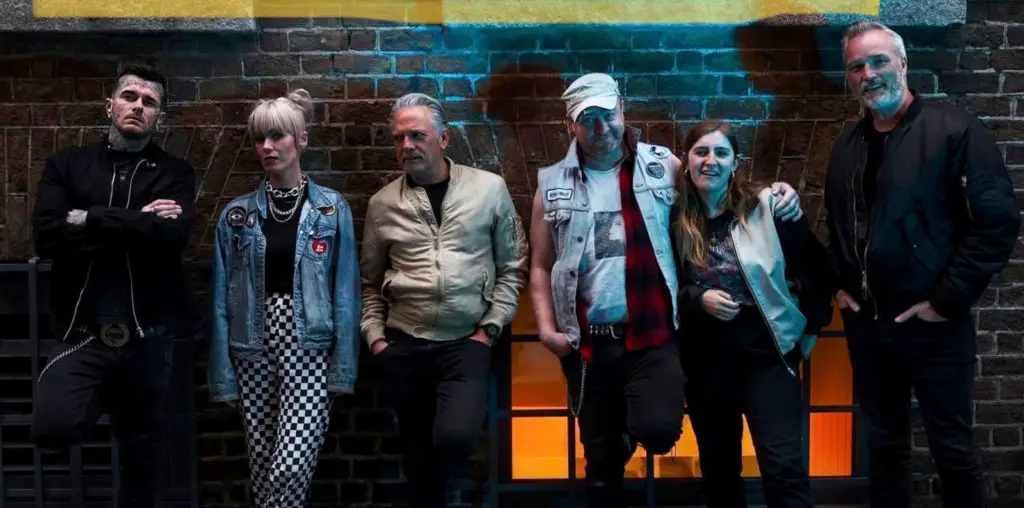
One of the world’s top chefs decides to take a unique summer vacation — driving from Ontario to the obscure islands of British Columbia in a biodiesel bus-cum-mobile-kitchen, preparing exquisite outdoor dinners using local ingredients, local themes and local farmers. He calls it “The Islands Project.”
From the start, we can see that chef Michael Stadtländer is a happy but quirky guy. He lives on Eigensinn Farm where he grows almost all of the ingredients (from livestock to plants) that will go into his occasional, but $300-or-so-per-person, eight-course plein-air dinners for select gourmands. The farm has earned a rep as one of the top dining spots in the entire world thanks to this approach, but Stadtländer (who also wrote and directed this documentary) seems happiest when he is able to share this experience beyond the farm.
Once “The Liberator” (his hippie kitchen-on-wheels) arrives in Canada’s west coast, he wastes no time finding and visiting farms and farmer’s markets scattered across Vancouver, Quadra and Cortes Islands, meeting artists and farmers, picking berries, discovering new foods and local delicacies, and consulting with locals (and the occasional celebrity-chef pal) to get ideas for his haute cuisine dinners, which are usually outdoors and always use unusual themes (a “table” made of stacked deadwood, plates made out of wooden starfish, or a dinner on a floating platform in the middle of a lake) that present challenges to him and his assistants.
The meals are, of course, extraordinary, creative and delicious-sounding, and are run not unlike a field military exercise. Stadtländer commands totally, directing not just the cooking but the furniture (helping make it if need be!), lighting, atmosphere and decor as required. The only rules for the variety of fare at these meals is that it must be ecological, sustainable and edible. If the film has a flaw, it’s that there isn’t enough footage of the dinner conversations themselves, or reactions to specific dishes. Also omitted is almost any mention of any “failed experiments” or unexpected surprises. The chef prefers to teach us all (including the locals) what might be called “food respect”; how to cook these incredibly fresh, home-grown items and how best to enjoy them within their natural setting, the outdoors.
Oddly enough, the highlight of the film are actually cutaway interviews Stadtländer does with farmers, fellow chefs and the occasional oddball. At the beginning of the film, we see him buying a disused console TV (one of those big honking 70s jobs), whereupon he hollows it out leaving just the front face, creating his own “TV show” on the road. These funny bits keep the mood light and break up the “go to an island, gather foods, prepare them, wow the natives” cycle of the dinners.
The final dinner takes place on an uninhabited island, so the entire “set” for the dinner must be constructed from found elements, a perfect complement to the dinner of found ingredients and visiting guests. This “vacation” looks like a hell of a lot of work to us, but Stadtländer seems content when it’s all done and time to go back to his farm. If you’re a “foodie,” you will enjoy this (even vegetarians, though there are scenes of meat being made if you catch my drift); if you’re an environmentalist you will love this; if you are both, this movie is one prolonged orgasm of sheer sensual pleasure.
